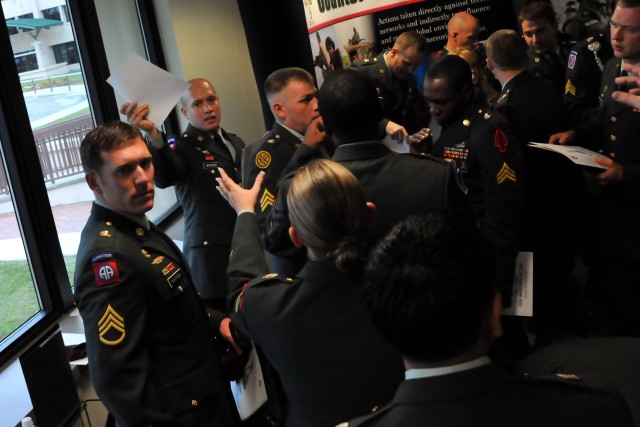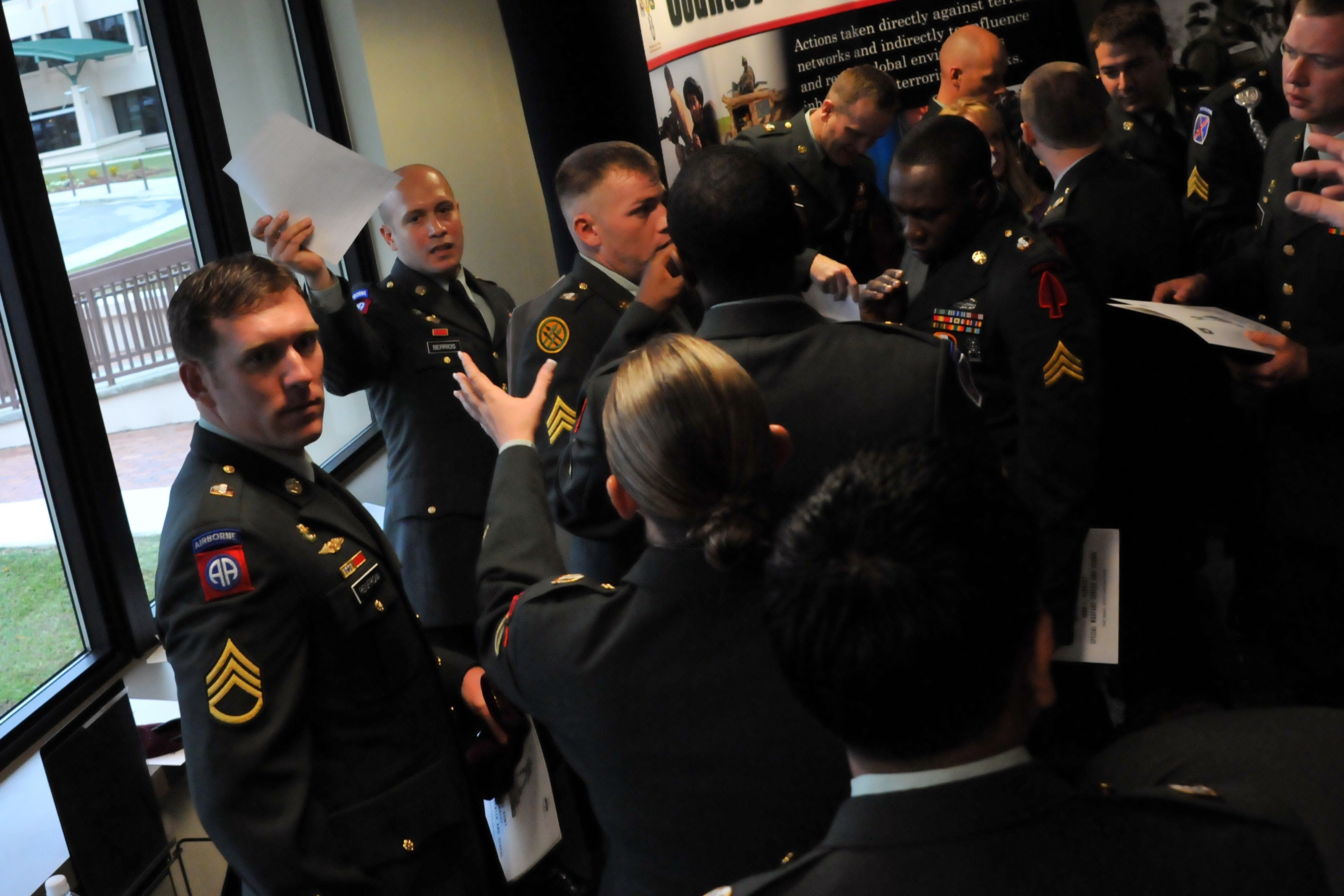FORT BRAGG, N.C. - The 173 Soldiers who joined the Army special operations community were left with two messages before joining their units: they have an important job ahead of them, and the noncommissioned officers in their ranks will be entrusted with greater responsibility than at any time in their careers.
The graduates for the Civil Affairs and Psychological Operations Qualifications Courses will be assigned to the Army's only active-duty units for their respective branches - the 95th Civil Affairs Brigade and the 4th Psychological Operations Group.
Speaking at the CAQC graduation Friday, Col. Michael Warmack, commander of 95th CAB, told graduates the world is becoming less stable, and they have a large role in helping to calm that instability.
"I have a requirement to deploy Soldiers to forty countries worldwide," Warmack said.
Warmack cautioned the 92 civil affairs graduates, including five foreign military members and one U.S. Marine Corps officer, that they will not fix the world's problems, but will "be a catalyst" for change.
Addressing the NCOs in the graduating class, Warmack stressed the unique role of sergeants in the growing Army civil affairs community, entrusting them to "carry the banner for civil affairs."
Warmack said the 95th CAB, now 900 Soldiers strong and slated to grow to 1,700 in the coming years, is unlike any unit they have worked in before.
To the graduating officers, he urged them to rely on and trust their NCOs, noting that 75 percent of each civil affairs team is comprised of sergeants.
During the PSYOP ceremony, Lt. Col. Wendy Graham, commander of 8th PSYOPS Bn., spoke to the 81 graduates, including seven foreign military members, four Air Force and two Marine Corps officers about the impact their teams will have.
Graham currently has military information support teams, comprised of 8th POB Soldiers, deployed across the U.S. Central Command area of responsibility. She told graduating PSYOP Soldiers they should soon expect to depart for worldwide missions.
"You are about to be deployed somewhere, at sometime, in a high-visibility environment," Graham said.
Like Warmack before her, Graham told graduates their role in shaping the nation's foreign diplomacy will far outweigh their rank or the number of people they deploy with.
"Nowhere else in the military does a junior officer or NCO take on the tasks and responsibilities of developing persuasive programs to support the goals of an ambassador, ground component commander and almost being completely autonomous six thousand miles away from home," she said.


Social Sharing